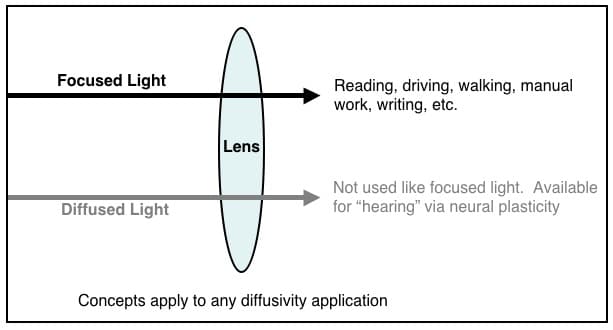This week, in our continuing series of posts about creating and using listening programs, I would like to talk about helping hearing aid wearers hear better in “fun” places, such as bowling alleys.
Many years ago, when remote controls first came onto the market, I had a patient who wanted to hear when she went bowling. “I love going to my bowling alley,” she told me. “I feel at home, and all my friends are there. Every time I go into the bowling alley I get hugged and kissed.”
So, instead of giving her one remote control, I programmed two remote controls with a total of 10 different programs. I designated one as her “normal” program, and the other nine programs were called “bowling alley #1, #2, #3…” I then sent her to the local bowling lanes to do some research.
She loved her assignment. She took notes. She switched between programs. She talked to all her friends and told them what was going on. In the end, we found a program that worked well. She was very happy.
CUSTOM FITTING FOR PATIENTS’ NEEDS
Since then I have used this customized approach with several other hearing aid patients who had unusual hearing needs. One was a man who played the accordion; another was a lady who had barking dogs. I also used this strategy to help a gentleman who had two friends that he often socialized with together: One of the friends talked very softly, the other very loudly.
Patients generally realize that they won’t be able to hear well in every environment. As a result, they may simply accept that they will be unable to hear well in some favorite place of theirs–a nightclub, perhaps, or a crowded restaurant or a noisy classroom. However, neither they nor their audiologist knows for sure whether or not a hearing aid will work in a particular situation unless they try carefully modifying it for that purpose.
Think of all the “fun” places and activities in which a person might need some extra help in hearing:
- Playing Bingo
- Singing in church
- Listening to a tour guide on vacation
- Playing cards
- At a birthday party or 50th-anniversary celebration
When you set up an experimental program for one such situation, you give the patient a good excuse to have some fun. They engage their friends in the effort. They take notes. They enjoy the process of working to improve how they hear in, for example, a bingo game.
Some of my most gratifying professional success stories have involved helping people hear well in noisy social or recreational activities that they enjoy.
I suggest that you develop your own “experimental approach” to help patients who want to hear in challenging situations. When you do this, make sure the patient understands the process and the number of office visits it will entail. Also, be sure to make clear to the patient what your charges for this task will be. Unless you are careful, you will get stuck paying for earmolds, remote controls, and other items that cannot be returned after an unsuccessful trial.
FITTING FOR A PARTICULAR VOICE
You may want to create another sort of individualized program to help patients communicate with a particular person. Many hearing aid wearers find that there is one person—a grandchild, their church’s minister, a friend or family member who is weakened by poor health—whose voice they just can’t understand when they are using their normal program.
The multi-listening program capacity of new hearing aids enables us to design an experimental program for an individual patient. Let’s assume you have a patient who is frustrated that she can’t talk with her 4-year-old granddaughter, Suzy.
Working with the patient, you can design a program—call it Suzy—that she will use only when she is trying to hear and understand her granddaughter.
If you try this approach and you find ways to make this experiment fun to do, the end result is often a success and a happier patient.
*Bowling image courtesy of www.stockfreeimages.com







What a pity that more audiologists does not think out of the box like “customs fit”
I often feel that only hearing aid users should be Audiologists, not very practical I hear you say,true but if only they could be deprived of their hearing for say a week I am convinced there would be greater empathy for their patients. No matter how good the training,nor how excellent the aids nothing but nothing can really describe the frustrating feeling of being among fellow human beings who are communicating at ease with each other while you the HOH are straining to catch some part of the discussions. To those who have a min., hearing loss and are finding the marvel of modern hearing aids please don’t think too hard of my seemingly feeling sorry for myself. Hearing does not get better with age so your turn will come,honest.